Classic Games Emulation | News | Systems | Emulation | Emulators | Games | Links
The Epyx Games Series
The Games Series:
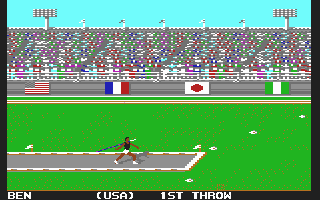
Summer Games kicked off what was to become one of the best and most enjoyable series of sports games ever, especially on the Commodore 64. Their gameplay was complex in that one had to learn entirely new sets of controls for each event, but still they were simple enough to be enjoyable. They generally had very good graphics and sound, and the attention to detail was superb: Water dripping off the high dive board, replays of a triple jump or a javelin toss, and a weightlifter adjusting his grip before he picked up the weights.
Perhaps, though, what made these games most addicting was their "World Records," the permanent record of the best score in any event. I remember spending years trying to beat a record in diving from when we had loaned our copy out once. I remember how my sister, my father, and I struggled to be the first to hit 20 points in gymnastics. Some records we could not remember how we had ever set, since we struggled to even come close to tying later.
Also imortant was the inclusion of so many events in each game. They all had around eight events, which left enough room to keep interest, beat records, and build empires ("Ha, you may have the record in biathalon, but I smoke everybody at ski jump!") - over and over again.
One of the other characteristics which always attracted me to these games was their light atmosphere. After struggling with giant spiders in New York, or slaughtering Nazis in the Eagle's Nest, Summer Games, with its bright, blue skies, and noble setting was a definite relief. I rarely tired of playing these games (even now I occassionally get addicted again for a few hours or days).
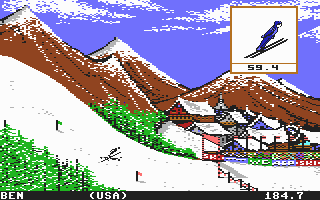
The control for these games was often interesting. Some events required complicated joystick combinations (but still very manageable ones - unlike some modern console games). Others required fast, repetitive twitches. One could say that the controls simulated the agility and finesse required for actual sports. At any rate, they certainly required the same obsessive practice. Some did still require a significant physical effort. I remeber intentionally tensing my arm muscles so tight they twitched, allowing me to gain maximum speed in the javelin toss. Some just required solid eye-hand coordination, like the ski jump, where one had to adjust the mistakes of the jumper by responding as quickly as possible with a joystick nudge in the proper direction. Most of them required excellent timing. One had to memorize the proper time to pull out of a dive to get 10s, or enter a spin on the horse at just the right time. But one of the things I remember best about these games is how many joysticks we went through playing them; something like 6 to 8, I think.
As I pointed out though, these games never could have achieved the success they did without having everything else they did. Good graphics, great gameplay, and nearly rock-solid control (despite the protests of vanquished competitiors) made these an incredible overall experience that has not been rivaled by any sports games I have played since (though that is an admittedly small number). They weren't sports simulators, or cheap arcade-style games with a sports look, but they rather evoked the feel of a sport: the work and practice, the competitive struggle, and the (sometimes rather strong) emotions of the victors and the failures.
(In 1988 Epyx released two games called The Games: Winter Edition and (surprise)
The Games: Summer Edition. They were similar to the classic games series, but they
were never quite as good. The graphics were more detailed but sometimes less effective.
Most importantly, however, the controls were difficult to use. Most events had rather loose
control, and some were almost impossible to control with any precision or consistency.
These were fatal flaws which significantly reduced the playability of what should have otherwise
been excellent games.) ![]()
Screenshots | |||
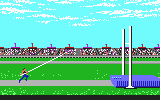 |
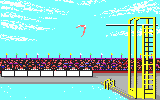 |
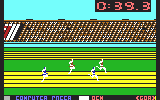 |
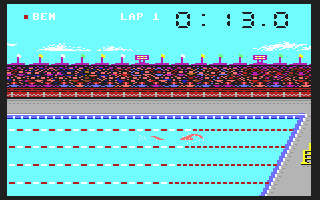 |
| SG: Pole Vault | SG: Platform Diving | SG: 100m Dash | SG: 100m Freestyle |
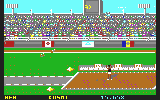 |
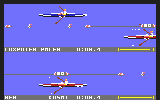 |
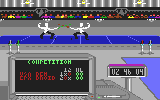 |
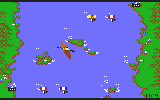 |
| SG 2: Triple Jump | SG 2: Rowing | SG 2: Fencing | SG 2: Kayaking |
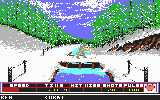 |
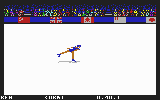 |
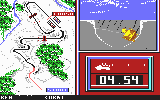 |
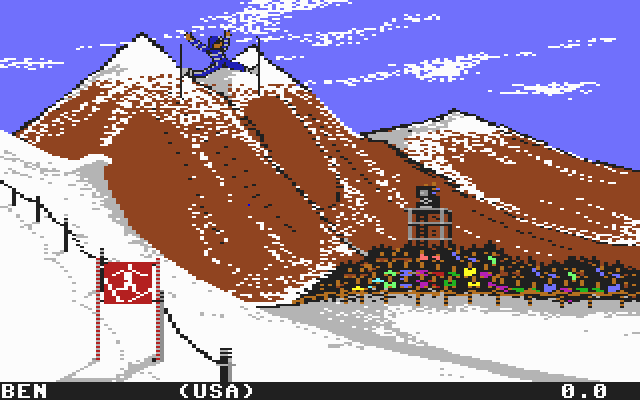 |
| WG: Biathlon | WG: Figure Skating | WG: Bobsled | WG: Hot Dog |
About CGE (including contact information)
Created March 29, 1998. Last updated June 7, 1998.